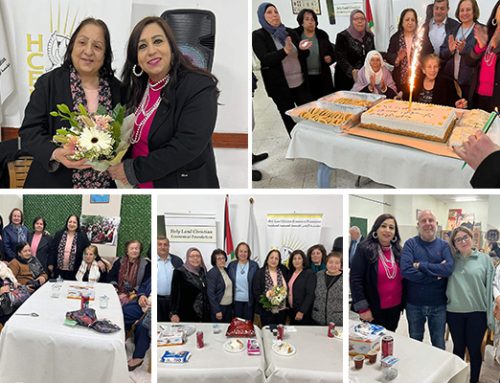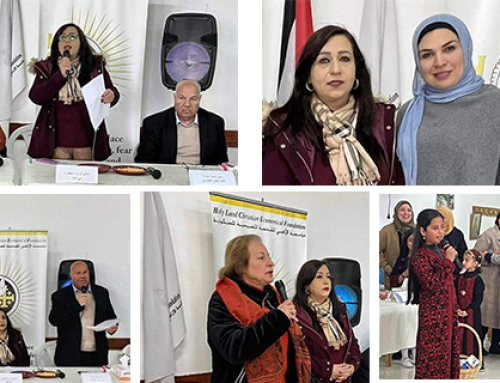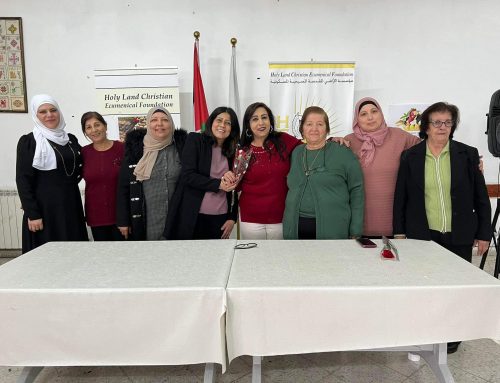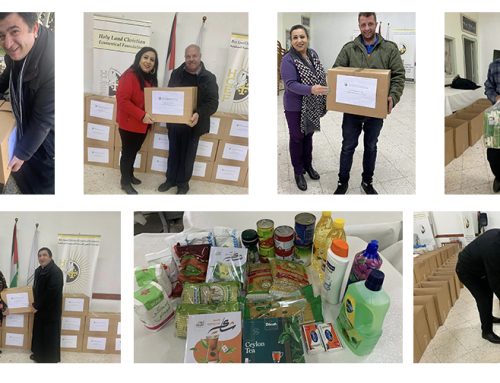Elyse Gainor
At HCEF’s 15th International Conference on Saturday, October 19, 2013, panelists Mrs. Hanan Karaman Munayyer, President, Palestinian Heritage Foundation, and Dr. Abeer Kayed Pelon, Professor of Political Science and History at Montgomery College and University of D.C. shared their insight on the progression of women’s status in the mid-morning panel entitled “Empowering Women is Empowering a Whole Society,” moderated by Malak Khader, student of Public Relations and Political Science at Marshall University. Using historical turning points as references, Munayyer and Pelon outlined the shifting position of women both within Palestine and throughout the Palestinian diaspora.
Munayyer’s presentation emphasized women’s significance as the ‘gatekeepers’ of history before 1948. She discussed traditional Palestinian woman’s dresses and the significance of their intricate patterns, through which one can identify the dress’ region of origin, and reflect historical links spanning back to ancient eras. In addition, the special garb required a specific local fabric and helped sustain the local economy through supporting the local textile industry, even during European settlers’ interference with trade. Written and co-produced by Mrs. Munayyer, “Palestinian Costumes and Embroidery: A Precious Legacy” provides more information about Palestinian costumes and their origin.
Women’s activities ceased to exist exclusively in the domestic sphere upon the development of surrounding events of 1948. Pelon explained how the Palestinian exodus to refugee camps encouraged women to attain an education. According to Pelon, the exodus inspired an ardent attitude towards education for both boys and girls, giving women more strength in the public sphere. The situation post-1948 and particularly post-1967 not only allowed more women to attain an education but to also participate in politics. “The Ongoing Nabka: 65 years of Fragmentations” written by Dr. Pelon, explores the journey of Palestine from 1948 to 2013, chronicling the history of Palestinian struggles since 1948 through poetry.
One can see the legacy of these developments today, as both Vera Baboun, the mayor of Bethlehem, and Janet Mikhail, the mayor of Ramallah, are women.
While not every barrier for women has been broken for Palestinian women both within Palestine and in the diaspora, the panelists concluded their session by affirming the progress achieved. Rattling off personal anecdotes and statistics, Munayyer and Pelon left the audience with a sense of assurance that Palestinian women’s social inclusion and contribution to community have indeed empowered society as a whole.
The 15th International Conference was held at the Washington Marriott in Washington, DC. To learn more about HCEF and its programs, visit us at www.hcef.org.





